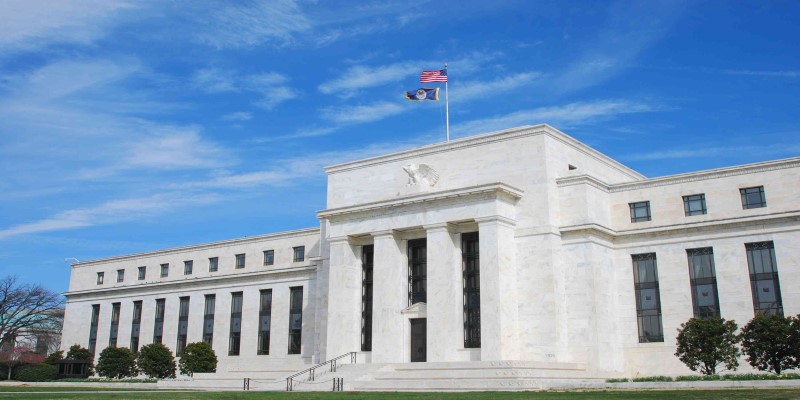Agency MBS Purchases: Exploring Their History, Benefits, and Challenges
Advertisement
Agency MBS purchases, in fact, are considered the basic part of the financial system. They quietly affect everything from mortgage rates to economic stability and, not less importantly, influence all forms of transactions crucially. Though rather complex, such purchases play an essential role in the increase of liquidity within the housing sector. What is the essence of Agency MBS purchases? We shall, therefore, embark upon their history, how they work, and the various benefits and criticisms they call forth to really appreciate their worth. This excursion reveals not only a financial tool but also a complex interaction between government policies, market dynamics, and the broader economy.

Historical Background of Agency MBS Purchases
The concept of mortgage-backed securities (MBS) was introduced in the late 1960s, marking a significant shift in how housing finance was managed. Initially designed to pool individual mortgages into a single investment vehicle, MBS created opportunities for investors while offering lenders much-needed liquidity. However, it was the advent of "Agency" MBS, issued or guaranteed by entities like Fannie Mae, Freddie Mac, and Ginnie Mae, that revolutionized the sector.
The federal government’s involvement in Agency MBS purchases gained momentum after the 2008 financial crisis. As housing markets collapsed and liquidity dried up, the Federal Reserve stepped in with large-scale MBS purchase programs. These measures were part of a broader strategy known as quantitative easing, aimed at stabilizing financial markets and supporting the economy. This pivotal moment underscored the central role Agency MBS purchases play in both mitigating crises and fostering economic recovery.
Mechanics of Agency MBS Purchases
Understanding how Agency MBS purchases work begins with the nature of these securities. Agency MBS are bundles of mortgage loans backed by federal guarantees. Investors in these securities essentially earn returns from the interest and principal payments homeowners make on their mortgages.
When the Federal Reserve or other entities engage in Agency MBS purchases, they enter the secondary market, where these securities are actively traded. By buying large volumes of Agency MBS, they inject liquidity into the housing finance system. This increased demand lowers yields on MBS, which, in turn, drives down mortgage interest rates. For consumers, this often translates into more affordable home loans, boosting housing market activity.
The process involves precise coordination between the Federal Reserve, mortgage lenders, and financial institutions. The purchases are usually conducted through open market operations, ensuring transparency and predictability. While the mechanics may seem dry, they form the backbone of a system designed to keep the wheels of the housing economy turning smoothly.
Benefits of Agency MBS Purchases
The advantages of Agency MBS purchases ripple across multiple layers of the economy. For starters, they promote stability in the housing market. By providing liquidity to mortgage lenders, these purchases ensure that homebuyers have continued access to affordable financing. This can be particularly crucial during economic downturns when private capital may be reluctant to invest.
Another significant benefit is the role these purchases play in economic recovery. Lower mortgage rates encourage home buying and refinancing, which, in turn, fuel broader economic activity. Home construction, real estate transactions, and related industries all benefit from the stimulus created by Agency MBS purchases. This boost extends to employment within these sectors, creating jobs in construction, retail, and financial services, all of which are deeply interconnected with the housing market.

From an investor's perspective, Agency MBS offers a relatively low-risk, high-liquidity investment option. The government guarantees behind these securities provide assurance that principal and interest payments will be met, making them a preferred choice for risk-averse investors. This sense of security attracts both domestic and international investors, strengthening the global perception of the U.S. financial system as a safe haven for stable returns.
For consumers, the ripple effect of lower mortgage rates extends beyond homeownership. With reduced monthly mortgage payments, homeowners may have more disposable income to allocate toward other spending priorities. This increased consumer spending can stimulate the broader economy, creating a reinforcing cycle of growth and investment.
Challenges and Criticisms of Agency MBS Purchases
While Agency MBS purchases bring undeniable benefits, they are not without challenges and detractors. One major criticism is their potential to distort the housing market. By artificially lowering mortgage rates, these purchases may lead to an overheating of the real estate sector, inflating property prices to unsustainable levels. This phenomenon can make housing less affordable for first-time buyers despite the lower interest rates.
There is also the issue of financial risk. While Agency MBS are generally considered low risk due to government backing, their large-scale purchase by the Federal Reserve can concentrate risk within the central bank. This raises concerns about the long-term stability of public finances and the broader economy.

Critics further argue that prolonged intervention in the MBS market can lead to market dependency. If institutions and investors come to rely heavily on government support, it could stifle innovation and efficiency in the private sector. Additionally, unwinding these purchases—known as balance sheet normalization—can be a complex and potentially disruptive process, as seen in recent attempts to reduce the Federal Reserve’s holdings.
Lastly, the fairness of Agency MBS purchases has come under scrutiny. Some contend that these interventions disproportionately benefit certain segments of the population, such as homeowners and real estate investors while offering little direct support to renters or those unable to access the housing market.
Conclusion
Agency MBS purchases are a critical financial tool that ensures liquidity in the housing market and supports economic stability, especially during crises. From their historical roots to their benefits, these purchases have profoundly impacted individuals, markets, and economies. However, challenges such as market distortions and fairness concerns highlight the need for careful policymaking. By understanding their mechanics and implications, we can better navigate the delicate balance between economic support and financial sustainability.
Advertisement












